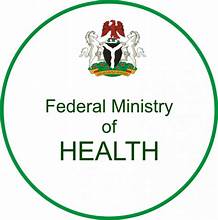President Bola Tinubu has given the green light to the National Policy on Health Workforce Migration. This policy aims to tackle the various challenges that affect Nigeria’s health human resources.
Prof Muhammad Pate, the Coordinating Minister of Health and Social Welfare, made this known on his social media handle (X) on Monday.
He highlighted that the healthcare workforce migration is a critical issue that requires a comprehensive strategy to address. It’s not just about responding to the current outflow of healthcare professionals, but also about managing, harnessing, and reversing this trend for the betterment of healthcare services.
Pate said, “This afternoon, HE President Bola Ahmed Tinubu, GCFR @officialABAT, in-Council, approved a landmark policy set to transform healthcare human resource management in Nigeria.
“The National Policy on Health Workforce Migration addresses the critical challenges facing Nigeria’s health human resources. As the AU Champion for Human Resources for Health and Community Health Delivery Partnership, Mr President’s commitment to a resilient and robust healthcare system is powerfully reflected in this forward-looking policy.
“This policy is more than just a response to the ongoing exodus of healthcare professionals; it’s a comprehensive strategy to manage, harness, and reverse health worker migration. It envisions a thriving workforce that is well-supported, adequately rewarded, and optimally utilised to meet the healthcare needs of all Nigerians.”
The healthcare sector in Nigeria faces a significant challenge as a large number of healthcare workers are choosing to relocate to other countries, resulting in increased workloads and longer shifts for those who remain.
The reasons cited for this trend include insufficient medical equipment, escalating insecurity, unfavorable working conditions, and an unsatisfactory salary framework.
The minister emphasized that at the core of their vision lies the Nigeria Human Health Resource Programme.
This program provides a structured framework for consistently evaluating and improving working conditions.
It also aims to ensure that healthcare workers, particularly those in remote and inadequately served areas, are duly acknowledged and rewarded for their contributions.
“By fostering an environment conducive to professional growth and stability, the policy aims to retain top talent within Nigeria.
“In an increasingly digital world, integrating advanced health technologies is essential. The policy’s focus on digital health infrastructure—including Electronic Medical Records, telehealth, and a comprehensive Health Workforce Registry—marks a significant step towards a more efficient, data-driven health system.
“These innovations will streamline healthcare delivery and enhance the equitable distribution of health workers, ensuring access to quality care for all Nigerians.
“Capacity building is at the heart of this policy. It recognises the importance of continuous professional development, with strategic partnerships and opportunities for international training to equip our healthcare professionals with cutting-edge skills.
“This investment in human capital underscores our commitment to retaining and empowering our healthcare workforce,” he stated.
In his statement, he highlighted that the policy focuses on facilitating the return and reintegration of Nigerian health professionals who are currently working overseas.
This involves creating efficient registration procedures and offering appealing benefits to not only entice skilled professionals to come back but also actively support their seamless integration into the local health system.
“This approach leverages the expertise of our diaspora to bridge gaps within the health sector.
“Also, the policy champions reciprocal agreements with other nations to ensure that the exchange of health workers benefits Nigeria.
“These bilateral and multilateral agreements are designed to protect national interests while respecting the rights and aspirations of our healthcare professionals.
“We call on recipient countries to implement a 1:1 match—training one worker to replace every publicly trained Nigerian worker they receive.
“Recognizing the importance of work-life balance, the policy includes provisions for routine health checks, mental well-being support, and reasonable working hours, especially for younger doctors.
“These measures aim to create a supportive work environment, reducing burnout and enhancing job satisfaction.
“The governance of this policy will be overseen by the National Human Resources for Health Programme within @Fmohnigeria, in collaboration with state governments.
“This ensures responsible implementation and alignment with broader sector-wide health objectives.
“With this decisive action, the National Policy on Health Workforce Migration is set to secure the future of Nigeria’s healthcare system.
“Under Mr President’s leadership, this policy will further catalyse the transformation of our health sector, ensuring access to quality healthcare for all Nigerians.
“As we embark on this journey, all stakeholders are invited to contribute to building a healthcare system that reflects our nation’s potential and promise,” The Minister said.



